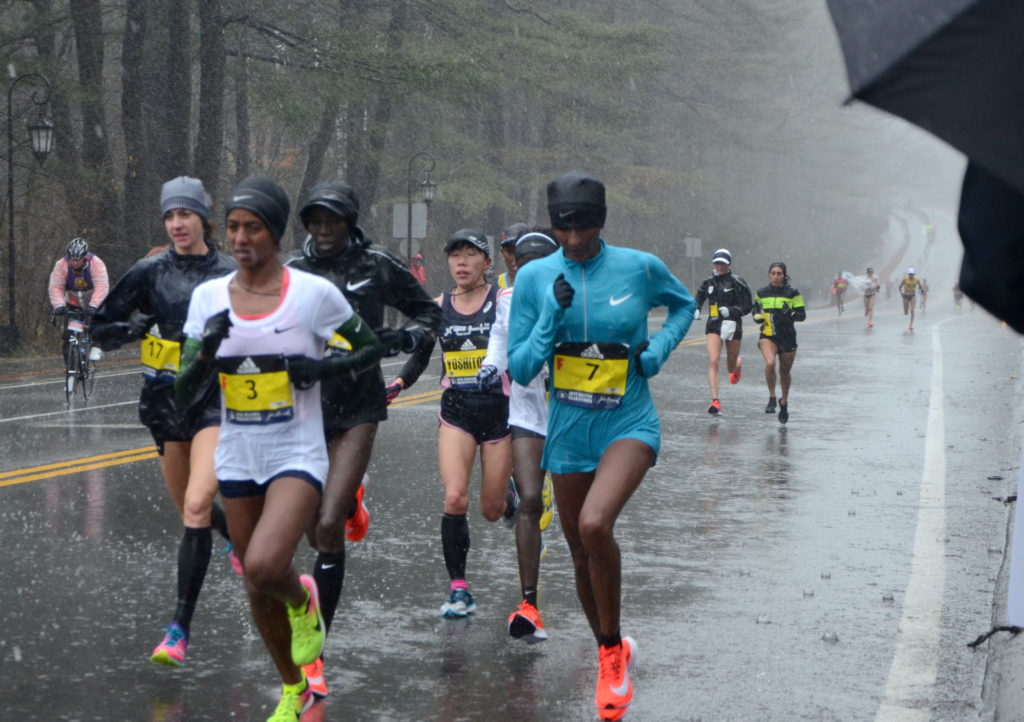Show Her The Money?
|
Jessica Chichester ran the fifth fastest time amongst females at this year’s Boston Marathon, 2:45:23. She won exactly zero dollars in prize money for her efforts. Was this sexism, given that the fifth fastest male took home $15,000? Nationally featured political commentator, millennial expert (whatever the hell that is), and author of GOP GPS, Evan Siegfried, seems to think so and shared this ill-informed and inflammatory Buzzfeed article (more on that in a bit) to back up his case. But Siegfried, like many others who are ready to incite a riot over this, is way off base here. Let me attempt to explain.
While Chichester ran an impressive race in Boston, not awarding her prize money is not sexism—it’s simply following the rules. And as much as Buzzfeed would like you to believe that if she were a man that she’d have taken home $15K, if a dude from Wave 2 (10:25 start) ran 2:19:15—faster than all but four of the elite men who hypothetically started 25 minutes ahead of him in Wave 1—guess what? He would have went home with empty pockets too. That’s because at a race like Boston—any race, really—you’re competing against other people, not the clock. Andrew Bumbalough took home $15,000 from Boston because he started in Wave 1 and was the fifth male across the finish line (and also happened to run the fifth-fastest time). The prize purse breakdown for men and women—which pays out 15 spots—is exactly the same for men and women. Boston, like many other marathon majors, has a separate women’s start. In order to be eligible for prize money, you need to be a part of said start. Just like to be eligible for men’s prize money, you need to start with Wave 1 at 10 AM. And in order to be included in the elite women’s field, you have to have proven your mettle at a previous race and be invited into it. I know this because I had three women who were invited to be part of the elite women’s field, two of whom were receiving this offer for the first time, and in the months prior to the race we talked about the advantages and disadvantages of starting with the elite women at 9:30 versus starting with the masses at 10 o’clock. Ultimately, we decided to start with the elite women, not necessarily to be eligible for prize money, but rather to experience what it would be like to be in a race with only a few dozen other women (which will more closely resemble the situation at the Olympic Trials two years from now) instead of relying on a large pack of men for company and competition. This is my way of saying: Chichester ran in a different race than the elite women and that’s why she wasn’t eligible for prize money. Different? How so? She was running alongside different (and arguably more) people, rather than responding to what was happening in the elite women’s race. Sure, the elite women have some advantages over everyone else: a dry place to hang out before the start and separate bottles along the course (which is not the case for all the women in the elite start—only one of my athletes was offered bottle service, for what it’s worth) but the dynamic of the two races is totally different.
Of course, this begs the question: Should there even be a separate women’s start to begin with? I say yes and I actually think it’s a good thing for women’s running from a couple different standpoints: 1. The women know who they’re racing against and can respond to moves accordingly; 2. The top women are front and center along the course—and on TV—throughout the race rather than blended in with a bunch of men. Chichester caught a tough break at Boston by running the fifth fastest time on the day en route to an 8-minute personal best while not being eligible to take home any prize money, but she was not a victim of sexism. She was an unfortunate victim of the rules, which were put in place to ensure fairness for all the athletes—not as a prejudice against women.
If you’re a fan of the morning shakeout, please consider becoming a patron and supporting it through Patreon. Thank you!